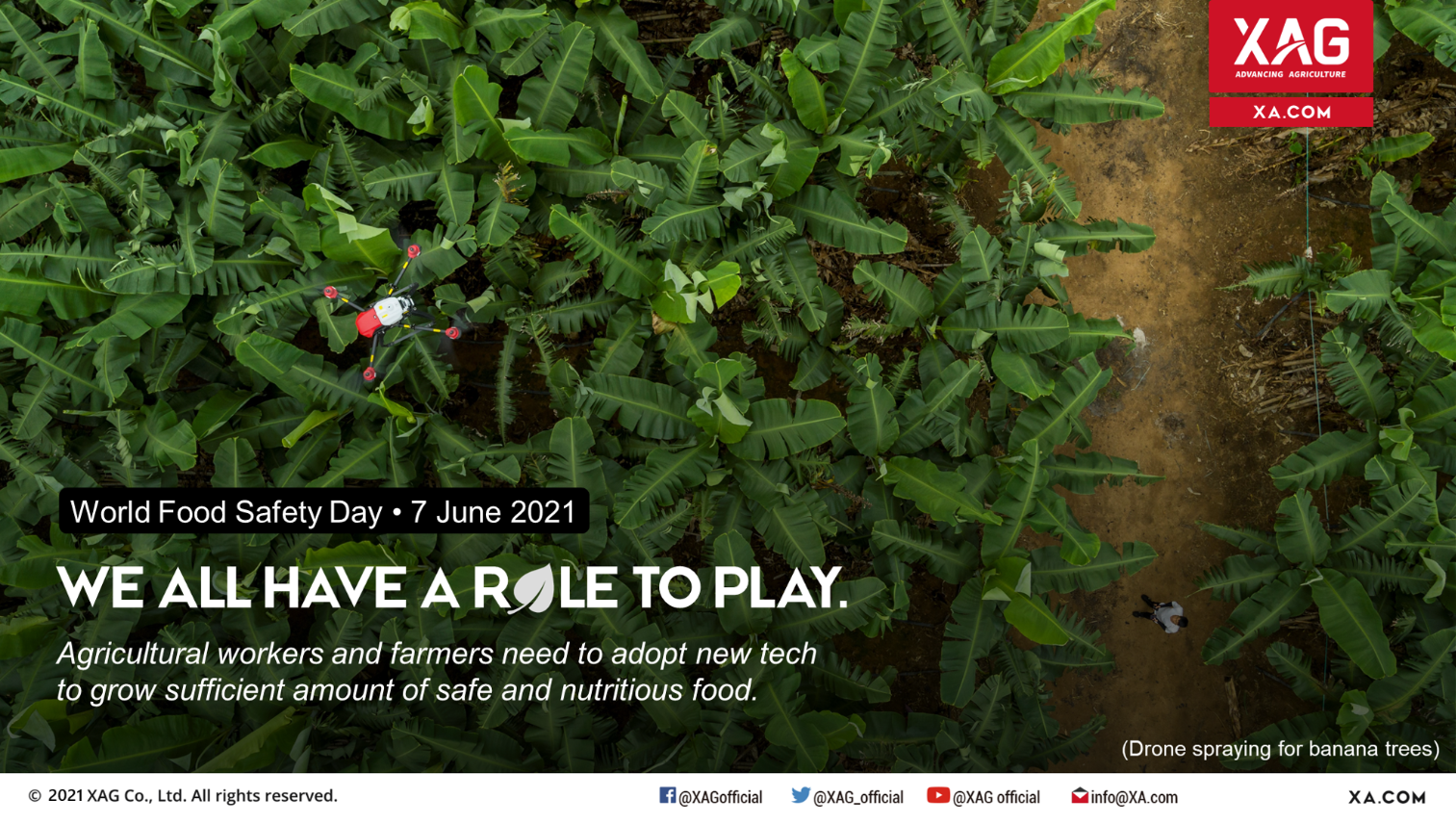- Home
-
Products
- News
- About
- Become a Distributor
Global - English

According to the World Health Organization, more than 600 million people fall ill and over 420,000 die every year from eating food contaminated with bacteria, viruses, parasites, toxins or chemicals. When food is not safe, healthy life cannot be sustained, not to say benefit from its nutritious value.

Food safety, as a public health priority, is everyone's business. Today on the third World Food Safety Day, we are calling on all agricultural workers and farmers to draw the attention and inspire action to produce safe food today for a healthy tomorrow. To ensure growing it safe, new technology can play a key role in avoiding pesticide exposure and relieving the burden of foodborne diseases.
Story: Grow It Safe with Robots
In Ecuador, food production relies greatly on smallholder farming. Particularly, farmers from the mountainous region, such as the Andes, represent the majority of smallholders in Ecuador. This part of agribusiness plays a pivotal role in the economy and food security of the whole nation. However, local producers and consumers there have long been troubled by unsafe food, which might be contaminated with excess pesticide residue.

XAG drone spraying on potatoes in Andes vegetable base (source: MegaDrone SA)
Located at high altitude areas, these smallholdings in the Ecuadorian Andes primarily produce vegetables, fruits, root and tuber crops for their livings. The soil of these farmlands naturally contains little organic material, and therefore requires amendment to make it arable. Besides, mountainous terrain and high altitude make it harder to use large machinery, leaving manual crop spraying the only option.

XAG R150 introduced to high altitude farming (source: MegaDrone SA)
Until recently, vegetable farm owners at an altitude of 2000-3000 meters above sea levels can enjoy the benefits of new technologies. Local agri-service provider MegaDrone has adopted XAG agricultural drones in the air and R150 unmanned vehicle on the ground to help farmers spray the crops. What precision spraying brings along is minimal usage of pesticides and fertilisers, cutting of chemical contamination at the farm-gate level. Ecuadorian farmers are now taking actions to provide sufficient, safe food for the whole country and improve the nutrition and health of local residents.
Everyone can contribute to making food safe. And autonomous technology such as drones and robots could be a great tool of empowerment that better support the precision farming plans of producers.